Introduction
Every horse owner knows the challenges of managing gastric ulcers in their animals. While these painful stomach lesions have received significant attention in the equine community, there's another equally important but often overlooked issue - hindgut problems. Both conditions deserve our careful consideration for maintaining optimal horse health.
Understanding Similar Signs
What makes these conditions particularly challenging to identify is how their symptoms overlap. Both stomach ulcers and hindgut issues can present with similar warning signs, making accurate diagnosis crucial.

Stomach Ulcers: Understanding the Basics
When we talk about equine gastric ulcers, we're referring to both squamous ulcers and glandular stomach disease - collectively known as Equine Gastric Ulcer Syndrome (EGUS). Watch for signs like:
- Decreased appetite
- Dropping weight
- Lackluster coat condition
- Behavioral issues, including heightened irritability
However, since these symptoms can signal various health problems, professional veterinary evaluation is essential.
Understanding Hindgut Problems
The hindgut can experience several distinct issues:
- Colon Ulcers: These create sores in the large intestine lining, leading to appetite loss, weight reduction, and behavioral changes.
- Right Dorsal Colon Inflammation: Often triggered by NSAID use, causing weight loss, loose stools, and stomach pain.
- Colon Inflammation: A broader term for large intestine inflammation from various causes including infections, diet changes, or medications.
- Blockages: Usually caused by insufficient hydration or fiber intake, resulting in colic symptoms and reduced manure output.
- Digestive Sensitivity: Similar to human IBS, causing ongoing inflammation and discomfort.
- Hindgut pH Imbalance: Results from high-sugar diets causing excessive fermentation and acid production.
- Bacterial Imbalance: Disruption of the natural gut bacteria balance leading to various health issues.
The Importance of Recognition
While stomach ulcers often get more attention, hindgut problems can be equally serious. Because these conditions share many symptoms (with hindgut issues sometimes including additional signs like loose stools), getting an accurate diagnosis requires careful observation and professional evaluation.
Taking Action
As responsible horse owners, we need to stay alert to any changes in our horses' behavior or comfort levels. When in doubt, consulting with your veterinarian is always the best course of action. They can perform appropriate testing to identify the root cause and recommend effective treatment options.
Conclusion
Maintaining our horses' health requires ongoing education and awareness. By staying informed about both stomach ulcers and hindgut conditions, we can provide better care for our equine partners.
Remember: Your horse's wellbeing depends on your knowledge and attention. Keep learning and stay informed about equine health issues to ensure your horse receives the best possible care.


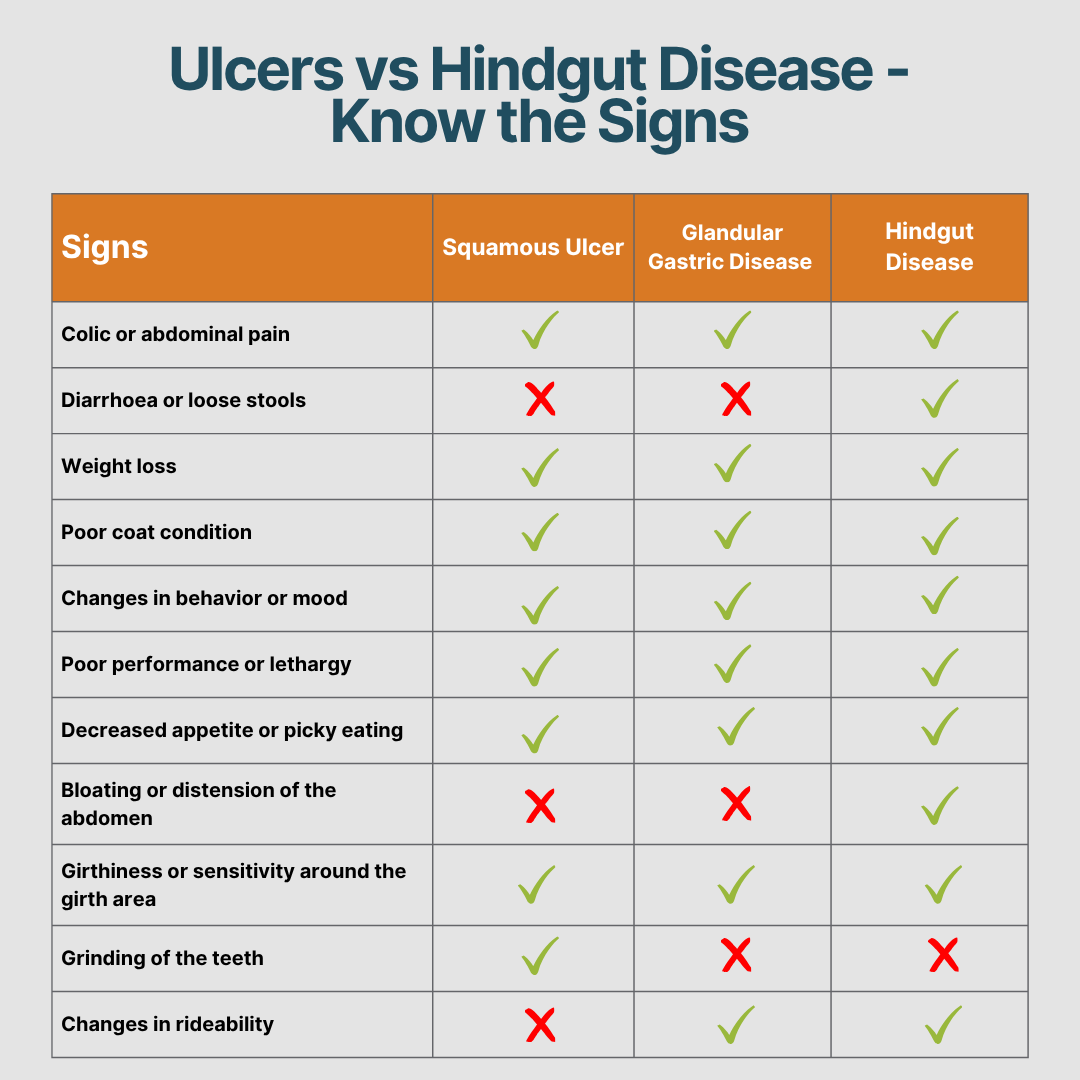
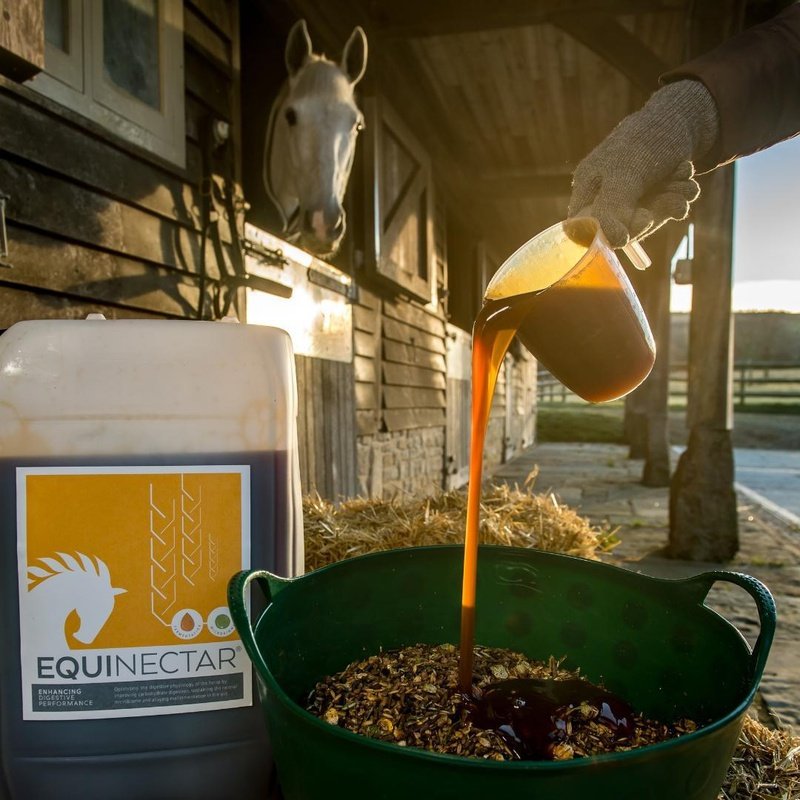
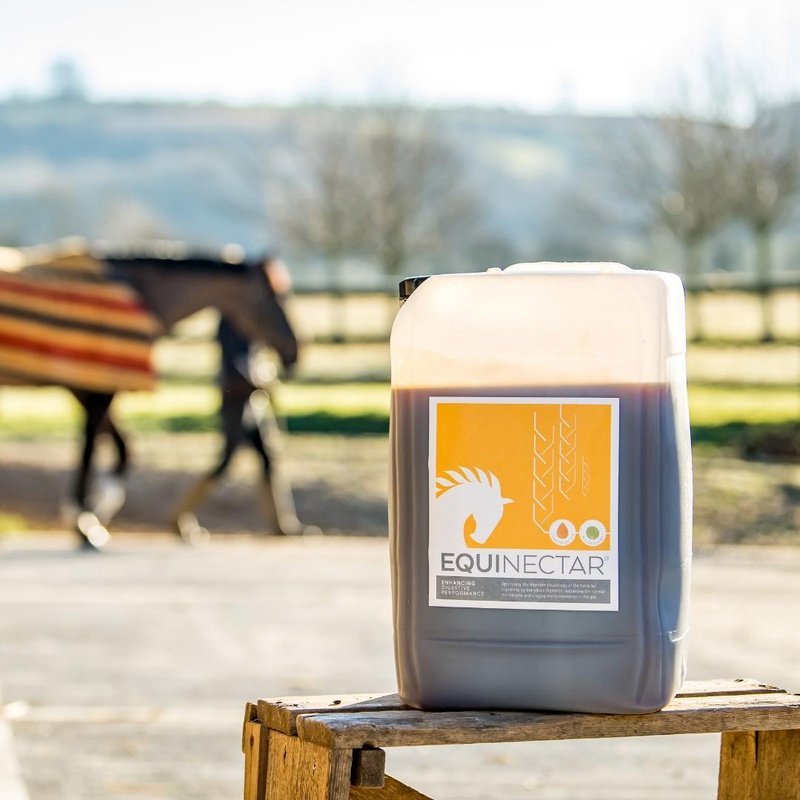
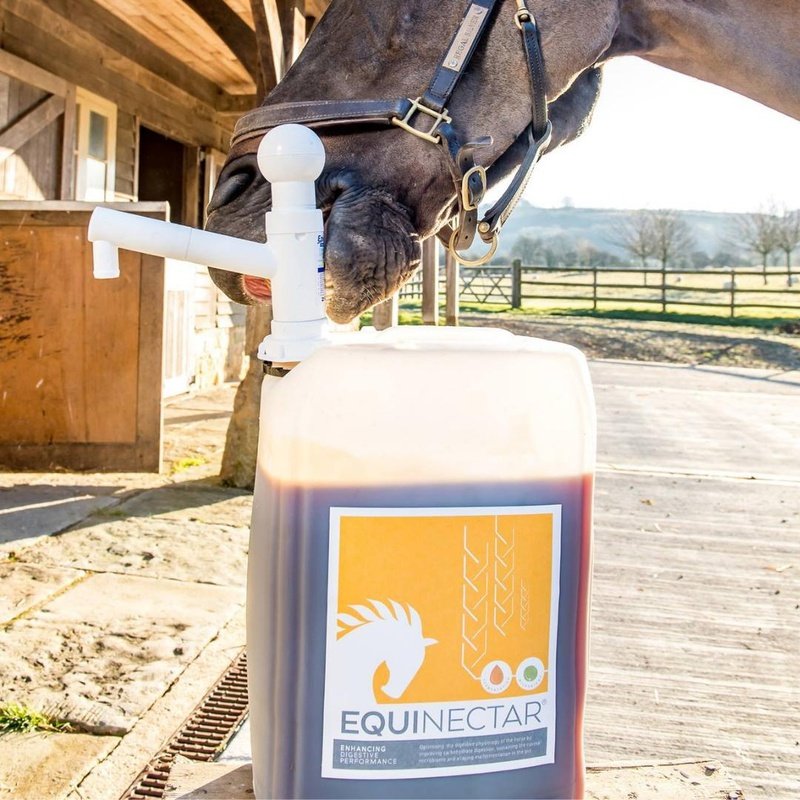
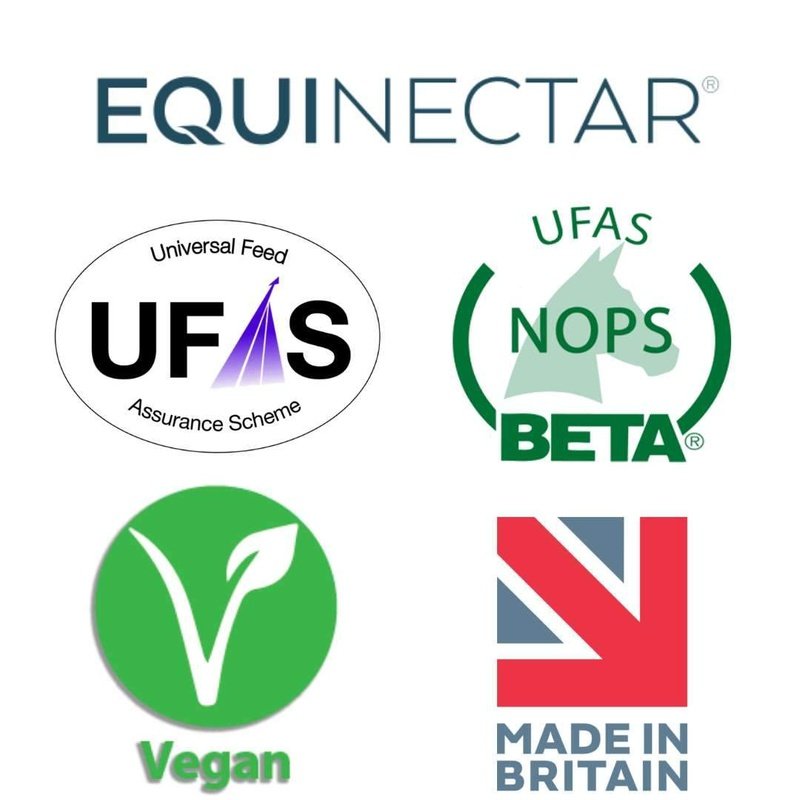
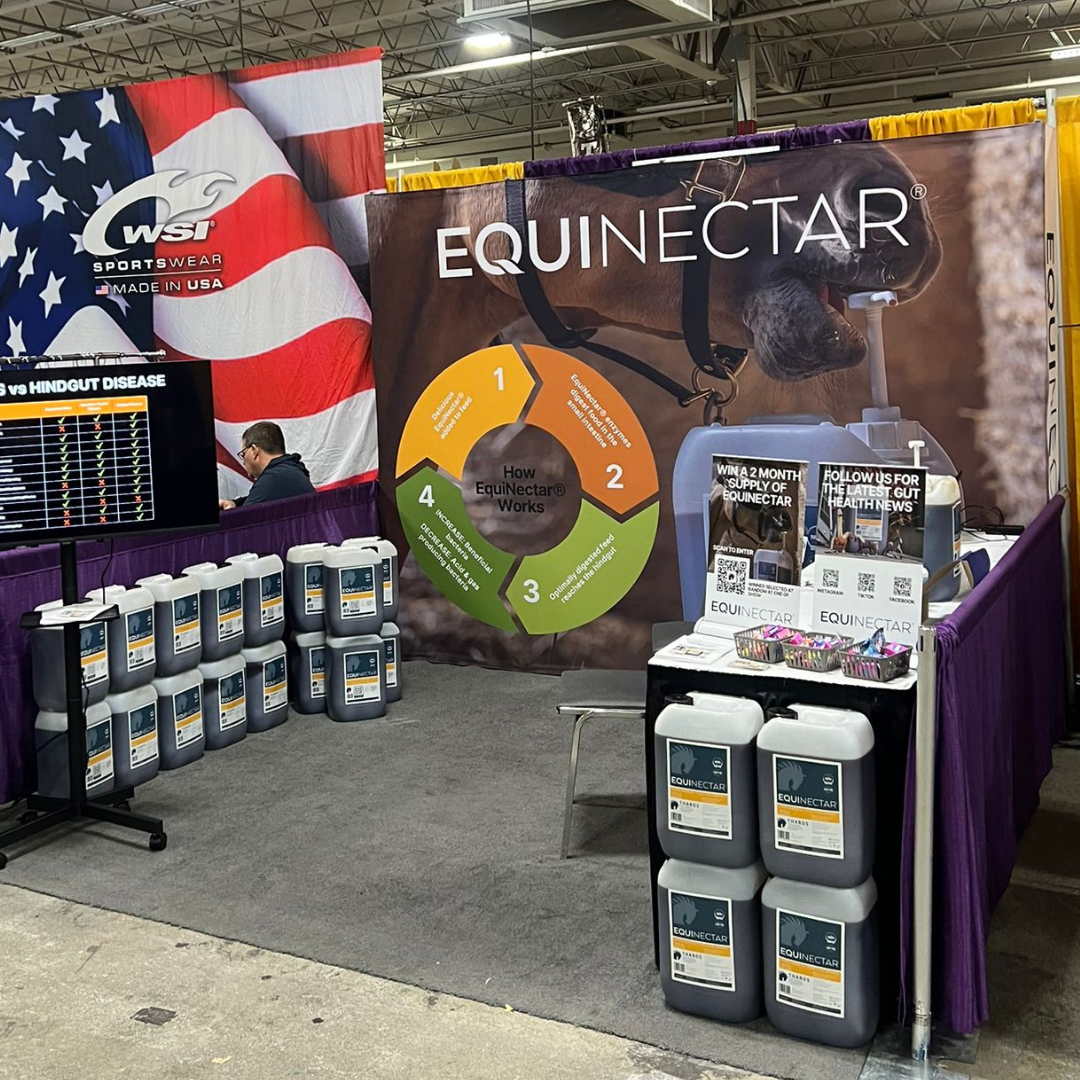

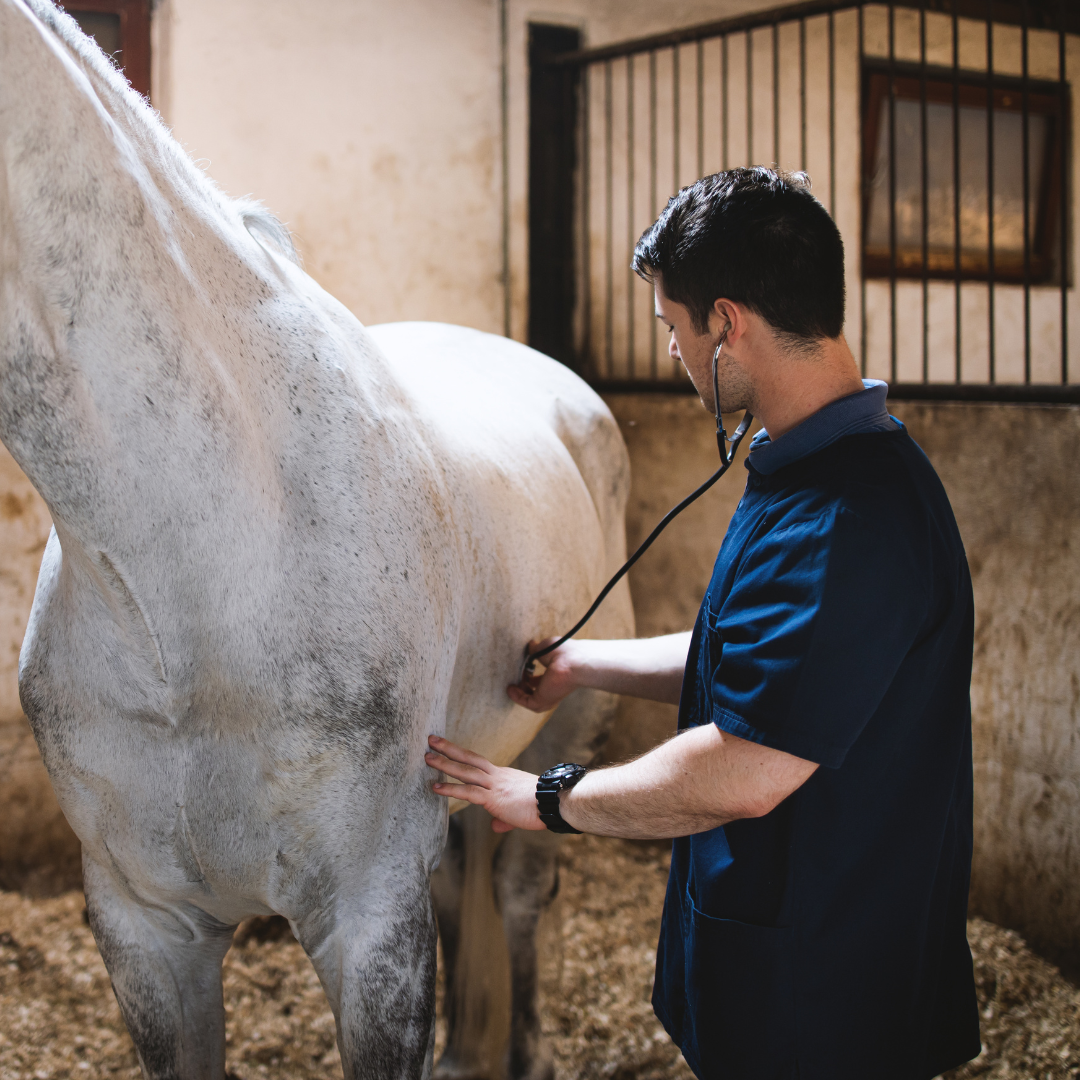
Share: